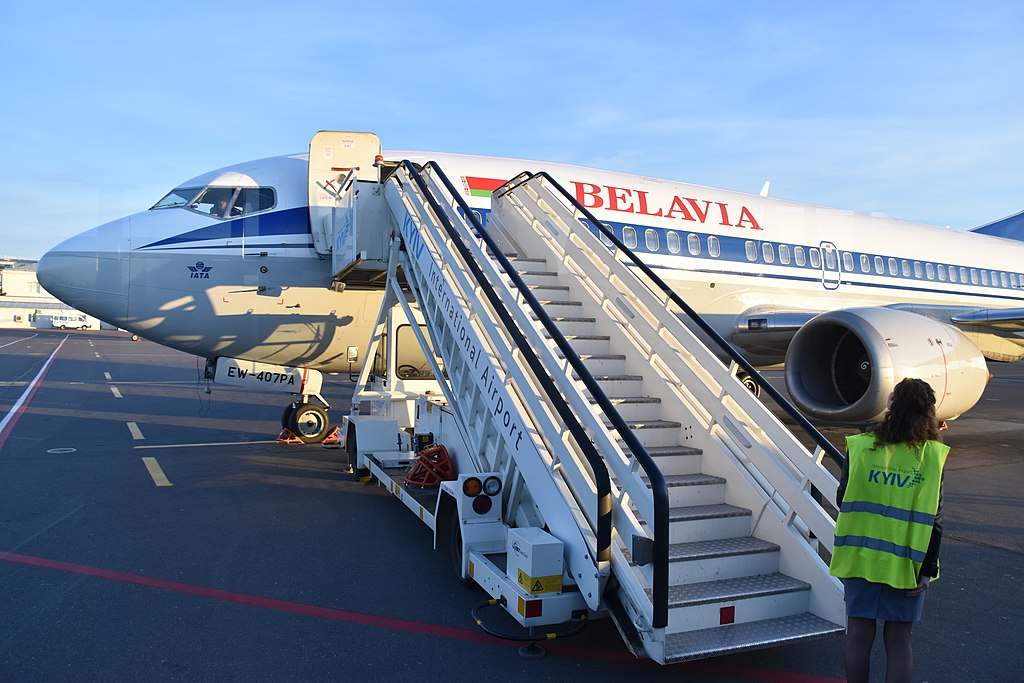Desperate men, women and children from the Middle East continue to pour into Belarus in an attempt to illegally cross the Polish border and enter the European Union. Although Europe welcomed around 1.3 million asylum seekers during the 2015 migrant crisis with open arms, this time the bloc sees refugees as an instrument that Belarusian President Alexander Lukashenko is using against the West.
Indeed, after the EU imposed sanctions on the Eastern European country following the arrest of a prominent Belarusian blogger Roman Protasevich in May, Lukashenko promised to punish the West by not stopping drug trafficking and illegal migrants. Soon after that, thousands of Syrians, Iraqis, Yemenis, and other nationals from the Middle East started flying to Minsk, hoping to use Belarus as a transit country on their way to rich Western European countries. Many of them managed to cross the border with neighboring Lithuania, Poland and Latvia but, as their number began to grow, the three eastern EU members started building barriers along the border, aimed at preventing the influx of migrants. Now thousands of refugees, most of them coming from Iraqi Kurdistan, remain stuck at the Belarusian-Polish border.
On November 15, a large group of asylum seekers attempted to storm the Kuznica border crossing and enter Poland. It is believed that they received false information that German authorities had agreed to provide dozens of buses that would transfer them to Berlin, Munich and Cologne.
“If the Poles are not providing a humanitarian corridor, if they are preventing this, then Belavia – Belarusian Airlines can take them to Munich. What’s the problem”, said the Belarusian President, who discussed the migrant crisis with the outgoing German Chancellor Angela Merkel.
It was the first contact between Lukashenko and a western leader since presidential elections in Belarus in August 2020. Formally, the West does not recognize Lukashenko and claims that the elections were rigged. In reality, however, Merkel’s phone call to Belarusian leader could be interpreted as a de facto recognition of his sixth term. Still, the West continues imposing sanctions on the former Soviet republic. The newest package of EU sanctions against Belarus includes the termination of leasing contracts with the national flag carrier Belavia. According to Irish Foreign Minister Simon Coveney, out of the 30 planes in Belavia’s fleet, 17 of them are leased through aircraft companies in Ireland. New sanctions will undoubtedly have a negative impact on Belarus’ airline, but they will also represent a big loss for the Irish side. Russian aircraft companies, on the other hand, could easily come out as big winners in this game, given that Belarus is expected to sign new leasing contracts with the Russians. Where two are fighting, the third wins.
Russia has already benefited from the sanctions the EU imposed on Belarus. Minsk has started exporting its products via Russian, rather than Lithuanian ports. Also, after the West cut off aviation links with the Eastern European country, most flights to Minsk now go via Russian airports. Politically, Belarus became heavily dependent on the Kremlin, and Lukashenko recently said that he is ready to invite Russian troops “if necessary”. It is not a secret that Moscow loves playing a role of mediator in various disputes and conflicts in the post-Soviet space. Thus, it is entirely possible that a small contigent of Russian troops could be eventually deployed to “protect” the Belarusian-Polish border.
Russian President Vladimir Putin has already discussed the migrant crisis with the German Chancellor and on November 15 he spoke with the French leader Emmanuel Macron. The two presidents reportedly agreed on the de-escalation of the crisis. As a result of their deal, Lukashenko, pressured by Putin, may have to find a way to remove migrants from the border and send them back to their home countries. Iraq has now suspended all flights to Belarus, revoked the work permit of Belarus’ consul to prevent them from issuing visas, and will soon start flying its citizens back to Baghdad. In addition to that, the Syrian private Cham Wings Airlines said that it suspended flights to Belarus’ Minsk airport, which means that the West still has an enormous potential to pressure and threaten other countries when its vital interests are under threat.
Hypothetically, Lukashenko could try to raise the stakes and bring more migrants to Belarus from other regions – namely from Central Asia – but given that most of the Central Asian nations are in the Russian sphere of influence, such a move does not seem probable. The Kremlin will likely try to persuade Lukashenko to ease tensions, but the Belarusian leader, as an experienced politician, is expected to seek certain concessions from Moscow.
It remains to be seen who the weakest link in this geopolitical game is. Lukashenko’s room for political maneuvers might be limited, but he will certainly not give up its fight against the West until he gets something in return from Putin. As he once said, “I’m not going to give up and I won’t kneel, even if I’m left alone. I will fight for what I have created for the past quarter of a century with my own hands.”
Indeed, the game is far from over, and the Russian and Belarusian leaders will likely soon hold another meeting, trying to implement the Putin – Macron de-escalation deal.
Image credit: Vasyatka1

